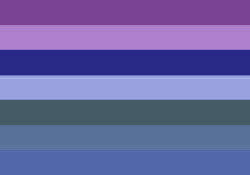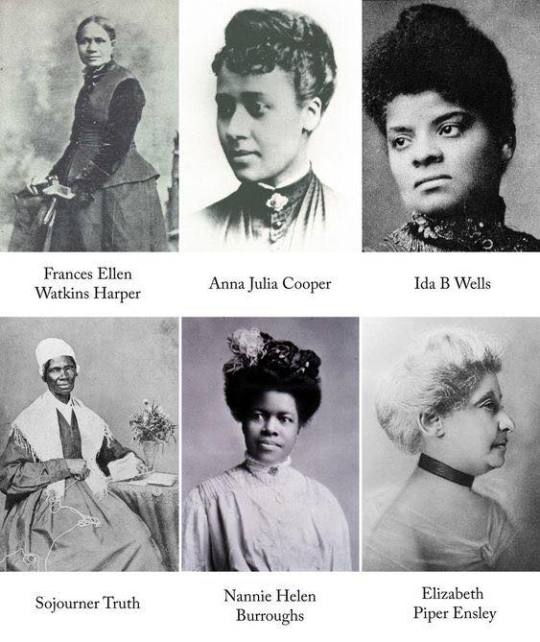#masculine genders
Explore tagged Tumblr posts
Text
MothBoy, LepidoBoy/MascPtera




MothBoy <- a gender where youre both a moth and a boy, a moth boy.
LepidoBoy / MascPtera <- a gender related to being a boy, identifying as a boy or masculine in some way/to some extent and moths, or a gender relating to masculine/male aligned moths or however else the user chooses to describe this. (may include butterflies but doesnt have to)

MascRocera


a gender specifically tied to masculinity and nocturnal moths and/or butterflies

#mothboy#lepidoboy#mascptera#mascrocera#genderboy#mothgender#lepidoptera#librarian jinx#jinx coins#lepido#lepido genders#lepidogenders#ptera#pteragenders#ptera genders#rocera#roceragenders#rocera genders#masculine genders#masculine gender#masc gender#masc genders#masc xenogenders#xenogender#mogai term#mogai blog#request#requested list#requests open#requests are open
15 notes
·
View notes
Text
Men, boys, and eggs of my acquaintance, I cannot stress this enough:
Nobody worth being with will ever judge you based on your deli sandwich choices.
Sincerely, a dude who had to watch like two dozen men pretend to find vegetarian sandwiches unthinkable in order to maintain a sense of masculinity today.
30K notes
·
View notes
Text
Thought of you guys

#isuggestforcemasc#forcemasc#autoandrophilia#transmasc#forced masculinization#force masc#silly forcemasc#ftm#fujoposting#this will be you#directed to any fujo who might see this post#you will either grow out of it or trans ur gender
2K notes
·
View notes
Text
not femininity or masculinity but a secret third thing (faggotry)
#this is my gender expression#shitpost#trans#transgender#queer#lgbtq#lgbtqia#mogai#transsexual#nonbinary#enby#genderfuck#genderqueer#genderfluid#genderflux#trans masc#trans femme#androgynous#neutrois#gay#femininity#masculinity#trans femininity#trans masculinity#8k
9K notes
·
View notes
Text
I think that a lot of the debate surrounding Vil’s gender identity would be cleared up if people accepted that Vil does not consider himself a feminine man. Vil doesn’t consider wearing makeup to be feminine. Vil does not consider the group performance to be feminine.
Vil isn’t doing feminine things despite being a man, nor is he reinterpreting feminine things as masculine. He does things because he considers them beautiful. Gender was never a part of the equation for him.
#Vil doesn’t deal with things based on gender he deals based on adjectives. feminine and masculine are not included in those adjectives.#Vil is feminine like a peacock is feminine. he isn’t. he’s just beautiful.#wagh… Pomefiore peacock symbolism ily#go my pedantics and discourse barrier! 🙌#twst#twisted wonderland#twst vil#vil shoenheit
2K notes
·
View notes
Text





If you love Trans then Say something Nice 😊
#trans#bisexual#transgender#queer positivity#trans beauty#trans goddess#trans memes#transblr#trans boy#trans selfie#girls like us#trans visibility#transgender man#trans masculine#gender euphoria#trans feminine#trans femme#trans hrt#trans ally#trans uk#trans people#trans artist#mtf trans#trans community#trans man#trans cult#trans rights#trans pride#trans experience#coming out
1K notes
·
View notes
Text
Ya know what shout out to butches who wrestle with our butchness because we don’t fit the mold in some way. Butches who aren’t physically strong or naturally caretaking because of physical disability, who need to be cared for, who can’t hold open the door for a femme. Butches with long hair, butches with big hair, butches who express their culture via their hair. Butches who’s masculinity is shaped by their culture, who’s masculinity doesn’t fit the white eurocentric mold. Fat butches, butches with curves viewed as feminine, butches who don’t have skinny, boyish builds. Butches who don’t want to be sexualized, butches on the ace spectrum. Butches who don’t have traditionally masculine interests or mannerisms or whatever. Effeminate butches. Butches who take inspo from gay men. Butches who like the occasional dress or skirt. TRANSFEM BUTCHES!!!!! And any other butches who don’t fit a certain mold!! All butches are good butches and we are all valid.
#I’ve wrestled with butch identity for a long time#Because I’m physically disabled and I am also Jewish and I love my hair and masculinity is Different in the Jewish community#I relate to how gay men do gender and am not traditionally masculine#I am fat and have a “mom bod” type of build#Etc etc#I have put so many standards on myself but why? I know who I am better than anyone. And I know I’m a butch!#It feels right and comfortable on every level#And that is what matters!!! Send post!#Kitty meows#Butch#Butchness#Butch lesbian#Butch identity#butch positivity
4K notes
·
View notes
Text
Playing off a post I just saw:
"I thought I saw a beautiful butch lesbian but it was just a man"
(which was followed by a super valid statement of "sometimes beautiful butch lesbians are also men and deserve love)
But I wanna go a step further.
Why'd he stop being beautiful? You, aesthetically, saw beauty in his masculinity before you knew his gender or his birth sex. Why do you think he's no longer beautiful just because he's (potentially) got a dick?
Unpack that.
Because he is beautiful. Masculinity is beautiful, even when it's on men.
5K notes
·
View notes
Text
they/them is not an all-inclusive pronoun that you can use to refer to anyone just because it is gender neutral.
the very basic sentiment of "don't misgender people" seems to go over even the heads of trans people and cis people alike when it comes to they/them pronouns.
not everyone wants to be called they/them. if someone strictly uses she/her or he/him or she/he or neopronouns etc. anything that is not they/them.... using they/them would still be misgendering. in the same way calling someone who doesn't use any other pronoun that pronoun would be misgendering.
You don't get a free pass to call people whatever pronouns you want to call them rather than the pronouns they use just because they them is a gender neutral pronoun.
also not all nonbinary people use strictly they/them pronouns or they/them pronouns at all.
i feel like this is very simple yet is misunderstood by a lot of people
#transblr#transgender#transsexual#trans#ftm#mtf#nonbinary#enby#trans nonbinary#misgendering#lgbt#transmasc#trans masculine#trans man#trans men#transfem#trans feminine#trans woman#transwomen#trans girl#tgirl#trans boy#tboy#agender#genderfluid#genderqueer#t4t#gender euphoria#theythem#neopronouns
3K notes
·
View notes
Text
Out of 10 what would you rate my girldick?

#trans posting#transgender man#transmasculine#trans solidarity#enby#gnc#trans women#queer joy#trans fem#queer pride#trans gender#transgirl#transman#mtf trans#trangender#trans#trans ally#trans beauty#trans community#trans experience#trans fashion#trans femme#trans girl#trans guy#trans hrt#trans joy#trans lives matter#trans man#trans masc#trans masculine
2K notes
·
View notes
Text

Very much so!
#tradwife#traditional wife#soft feminine#trad wives#traditional gender roles#masculine#reject modernity embrace tradition#tradwoman#traditional lifestyle#50s vintage#50s housewife#jesus loves you#men are superior#godly woman#lovers#anti feminist women#anti feminism#fuck feminism#femininty#traditional femininity#masculinity#real wives
620 notes
·
View notes
Text
Seeing masculine women, especially lesbians, defend TRA till their last breath and then watching them get told they’re “terfy” for calling themselves a lesbian/not catering trans enough/etc and it’s just like. Have some self respect for yourself.
I always think about this video by Hannah Berelli
“They hate masculine women. They hate lesbians… the only way to exist in that space is to pretend as if being masculine makes you not a woman. Give up. They’re never going to accept you” -Hannah Berrelli
You can write all these think pieces about how lesbian or butch is your gender identity, how loving women isn’t terfy and you totally accept trans women. They don’t fucking care. Being a gender-non conforming woman is universally hated even by the spicy straights.
#masculine woman#masculine women#radblr#radical feminism#hannah berelli#redfem#radical feminist safe#radical feminists do interact#terfsafe#radical feminists do touch#gender critical#gendercritical#terfblr#radfeminism#feminism#love women#masculinity#masculine doesn’t mean bad#lesbian#female exclusive bisexual#women loving women#same sex love#homosexual
562 notes
·
View notes
Text
i really love the scenes where tyrion is called upon to join other men in doing violence (such as the battle of the blackwater or the attack by mountain clans on the way to the eyrie). he always seems sort of shaken and sort of proud of himself in a very realistic way: killing another human being is inherently frightening and disgusting, but at the same time, tyrion has been treated as physically helpless (and specifically as less than a man) his whole life, and he is filled with anger he normally has no safe way to express. these brief tastes of what it would be like to be treated as a fellow warrior by other men... of course this is tantalizing to him. of course some part of him relishes it. in these moments, other men are willing to interact with him as a fellow group member. and he thinks: is this how jaime feels all the time? because for a westerosi lord, this is what it means to be a man.
and it's understandable but also profoundly sad. like... congratulations on your tenuous, conditional membership in the world's worst boys club.
#tyrion lannister#asoiaf#valyrianscrolls#op#war#gender#masculinity#we often talk in this fandom about grrm's deconstructions of patriarchal femininity#but i think his deconstructions of patriarchal MASCULINITY are at least as insightful#especially with characters like tyrion. sam. loras. jon comma debatably.#sidenote: someday im gonna do a full length 6k word meta about locker room talk among male characters in asoiaf
477 notes
·
View notes
Text


♥️♥️♥️
#trans#girls like us#trans visibility#trans boy#transgender man#trans selfie#trans love#nonbinary#transblr#trans goddess#trans memes#trans solidarity#gender fluid#genderqueer#trans masculine#trans femme#trans uk#trans people#trans experience#trans rights#trans mtf#trans community#transsexual#trans beauty#trans hrt#trans ally#gender euphoria#trans positivity#trans man#trans girl
598 notes
·
View notes
Text
I don't know who needs to hear this, but: If you're a man -whether you've been one all your life or just recently started to notice within yourself the need to become one- that's enough.
You don't have to pass a test, there is no quiz, you don't have to check a minimum amount of gender role boxes. No one can tell you HOW to be a man. It doesn't matter how you look or how your body looks, how you talk, how you act, how you behave, what your sexuality is. You don't even have to fit in with the other guys. If being a man feels right for you, you can say "This is me and I'm a man".
The gender police will never knock on your door. Your gender is your own business and no one else's. No one can tell you what a man can or can't do. There is no wrong way to be a man. Be the kind of man you want to be, the kind that sparks joy. You can do it, bro. I believe in you.
#man#i just realizes this is what kens journey in barbie was about#manhood#masculinity#trans#trans man#transmasc#ftm#male feminist#lgbt#mens mental health#male positivity#positive masculinity#healthy masculinity#gender equality#cis man
2K notes
·
View notes
Text

A Historical Deep Dive into the Founders of Black Womanism & Modern Feminism
Six African American Suffragettes Mainstream History Tried to Forget
These amazing Black American women each advanced the principles of modern feminism and Black womanism by insisting on an intersectional approach to activism. They understood that the struggles of race and gender were intertwined, and that the liberation of Black women was essential. Their writings, speeches, and actions have continued to inspire movements addressing systemic inequities, while affirming the voices of marginalized women who have shaped society. Through their amazing work, they have expanded the scope of womanism and intersectional feminism to include racial justice, making it more inclusive and transformative.
Anna Julia Cooper (1858–1964)
Quote: “The cause of freedom is not the cause of a race or a sect, a party or a class—it is the cause of humankind, the very birthright of humanity.”
Contribution: Anna Julia Cooper was an educator, scholar, and advocate for Black women’s empowerment. Her book A Voice from the South by a Black Woman of the South (1892) is one of the earliest articulations of Black feminist thought. She emphasized the intellectual and cultural contributions of Black women and argued that their liberation was essential to societal progress. Cooper believed education was the key to uplifting African Americans and worked tirelessly to improve opportunities for women and girls, including founding organizations for Black women’s higher education. Her work challenged both racism and sexism, laying the intellectual foundation for modern Black womanism.
Frances Ellen Watkins Harper (1825–1911)
Quote: “We are all bound together in one great bundle of humanity, and society cannot trample on the weakest and feeblest of its members without receiving the curse in its own soul.”
Contribution: Frances Ellen Watkins Harper was a poet, author, and orator whose work intertwined abolitionism, suffrage, and temperance advocacy. A prominent member of the American Equal Rights Association, she fought for universal suffrage, arguing that Black women’s voices were crucial in shaping a just society. Her 1866 speech at the National Woman’s Rights Convention emphasized the need for solidarity among marginalized groups, highlighting the racial disparities within the feminist movement. Harper’s writings, including her novel Iola Leroy, offered early depictions of Black womanhood and resilience, paving the way for Black feminist literature and thought.
Ida B. Wells (1862–1931)
Quote: “The way to right wrongs is to turn the light of truth upon them.”
Contribution: Ida B. Wells was a fearless journalist, educator, and anti-lynching activist who co-founded the National Association for the Advancement of Colored People (NAACP). Her investigative reporting exposed the widespread violence and racism faced by African Americans, particularly lynchings. As a suffragette, Wells insisted on addressing the intersection of race and gender in the fight for women’s voting rights. At the 1913 Women’s Suffrage Parade in Washington, D.C., she famously defied instructions to march in a segregated section and joined the Illinois delegation at the front, demanding recognition for Black women in the feminist movement. Her activism laid the groundwork for modern feminisms inclusion of intersectionality, emphasizing the dual oppressions faced by Black women.
Sojourner Truth (1797–1883)
Quote: “Ain’t I a Woman?”
Contribution: Born into slavery, Sojourner Truth became a powerful voice for abolition, women's rights, and racial justice after gaining her freedom. Her famous 1851 speech, "Ain’t I a Woman?" delivered at a women's rights convention in Akron, Ohio, directly challenged the exclusion of Black women from the feminist narrative. She highlighted the unique struggles of Black women, who faced both racism and sexism, calling out the hypocrisy of a movement that often-centered white women’s experiences. Truth’s legacy lies in her insistence on equality for all, inspiring future generations to confront the intersecting oppressions of race and gender in their advocacy.
Nanny Helen Burroughs (1879–1961)
Quote: “We specialize in the wholly impossible.”
Contribution: Nanny Helen Burroughs was an educator, activist, and founder of the National Training School for Women and Girls in Washington, D.C., which emphasized self-sufficiency and vocational training for African American women. She championed the "Three B's" of her educational philosophy: Bible, bath, and broom, advocating for spiritual, personal, and professional discipline. Burroughs was also a leader in the Women's Convention Auxiliary of the National Baptist Convention, where she pushed for the inclusion of women's voices in church leadership. Her dedication to empowering Black women as agents of social change influenced both the feminist and civil rights movements, promoting a vision of racial and gender equality.
Elizabeth Piper Ensley (1847–1919)
Quote: “The ballot in the hands of a woman means power added to influence.”
Contribution: Elizabeth Piper Ensley was a suffragist and civil rights activist who played a pivotal role in securing women’s suffrage in Colorado in 1893, making it one of the first states to grant women the vote. As a Black woman operating in the predominantly white suffrage movement, Ensley worked to bridge racial and class divides, emphasizing the importance of political power for marginalized groups. She was an active member of the Colorado Non-Partisan Equal Suffrage Association and focused on voter education to ensure that women, especially women of color, could fully participate in the democratic process. Ensley’s legacy highlights the importance of coalition-building in achieving systemic change.
To honor these pioneers, we must continue to amplify Black women's voices, prioritizing intersectionality, and combat systemic inequalities in race, gender, and class.
Modern black womanism and feminist activism can expand upon these little-known founders of woman's rights by continuously working on an addressing the disparities in education, healthcare, and economic opportunities for marginalized communities. Supporting Black Woman-led organizations, fostering inclusive black femme leadership, and embracing allyship will always be vital.
Additionally, when we continuously elevate their contributions in social media or multi-media art through various platforms, and academic curriculum we ensure their legacies continuously inspire future generations. By integrating their principles into feminism and advocating for collective liberation, women and feminine allies can continue their fight for justice, equity, and feminine empowerment, hand forging a society, by blood, sweat, bones and tears where all women can thrive, free from oppression.
#black femininity#womanism#womanist#intersectional feminism#intersectionality#intersectional politics#women's suffrage#suffragette#suffrage movement#suffragists#witches of color#feminist#divine feminine#black history month#black beauty#black girl magic#vintage black women#black women in history#african american history#hoodoo community#hoodoo heritage month#feminism#radical feminism#radical feminists do interact#social justice#racial justice#sexism#gender issues#toxic masculinity#patriarchy
530 notes
·
View notes